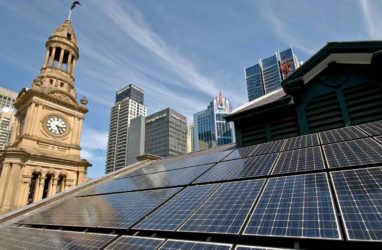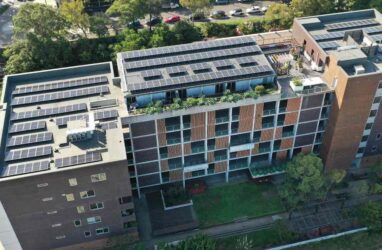Feed aggregator
BRIEFING: Over half of APAC’s economy directly dependent on nature, highly vulnerable to nature-related risks
INTERVIEW: Plastic credits for waste recovery can help plug financing, regulatory gaps
BRIEFING: Who are the small industrial emitters covered by the EU’s ETS2?
Australia’s largest resources export state fails again to buck emissions trend
Korean steelmaker to to launch combined blue carbon, marine biodiversity conservation project
UK ‘helping Russia pay for its war on Ukraine’ via loophole on refined oil imports
£2.2bn-worth of oil processed in China, India and Turkey – to whom Russia supplies crude – was imported in 2023, data shows
The UK has been accused of “helping Russia pay for its war on Ukraine” by continuing to import record amounts of refined oil from countries processing Kremlin fossil fuels.
Government data analysed by the environmental news site Desmog shows that imports of refined oil from India, China and Turkey amounted to £2.2bn in 2023, the same record value as the previous year, up from £434.2m in 2021.
Continue reading...Green industrial production set to migrate to renewables-rich countries -study
Australian state to develop guide to reduce biodiversity impacts from renewable energy projects
Australia’s Woodside sees climate plans rejected by AGM
Thai bank teams up with consultancy to decarbonise energy, agriculture sectors, promote carbon trading
Removals buyers club signs CDR offtake agreement with concrete CO2 mineralisation tech developer
Birdsong once signalled the onset of spring on my street – but not this year | Tony Juniper
A dawn chorus of flutes, whistles and chirps once flowed through my Cambridge window, but there has been a shocking collapse in birdlife. What can be done?
Every year from February through to June, the early morning chorus of birdsong is one of the most evocative manifestations of spring. During late winter I open the bedroom window before going to sleep, to hear that incredible mix of flutes, whistles and chirps that begin before first light, when I wake. I listen for the layers of song that simultaneously come from close by and far away.
This year though, the dawn chorus that once was the soundtrack for spring in central Cambridge has collapsed. It was noticeably quieter in 2023, and this year strikingly so. Blackbirds are depleted and song thrushes no longer heard at all. The dunnocks – once one of the most common garden songsters – have disappeared, as have the chaffinches, whose early February song was among the first audible confirmations of lengthening days. The cheery chatter of house sparrows is absent and the once familiar sound of coal tits has fallen silent. Long-tailed tits are now rare, and so far this year I’ve heard no blackcaps. Great and blue tits, robins and goldfinches, are still present, but down in number.
Continue reading...Sugar gums have a reputation as risky branch-droppers but they’re important to bees, parrots and possums
ANALYSIS: Japan’s inclusion of CDR credits not expected to stir enthusiasm in domestic carbon market
Our tall, wet forests were not open and park-like when colonists arrived – and we shouldn’t be burning them
Buildings as batteries: How basic demand response could shift 12GW of peak demand, save billions
The post Buildings as batteries: How basic demand response could shift 12GW of peak demand, save billions appeared first on RenewEconomy.
Australian shared solar pioneer scores big from Biden billions
The post Australian shared solar pioneer scores big from Biden billions appeared first on RenewEconomy.
NSW to open bids for access to first two renewable zones, in race to plug in new wind, solar and batteries
The post NSW to open bids for access to first two renewable zones, in race to plug in new wind, solar and batteries appeared first on RenewEconomy.
Fortescue says green hydrogen target still on track, but Australia projects stalled by power prices
The post Fortescue says green hydrogen target still on track, but Australia projects stalled by power prices appeared first on RenewEconomy.







